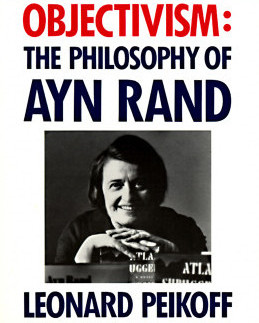- Capitalism as the Only Moral Social System
- Capitalism as the System of Objectivity
- Opposition to Capitalism as Dependent on Bad Epistemology
***
An excerpt from chapter 11 on Capitalism from Objectivism: The Philosophy of Ayn Rand by Leonard Peikoff.
Politics is to economics as mind is to body, or as an abstraction is to one of its concretes. Politics identifies the principles that should govern every social field. The right political system thus includes as one of its aspects the right economic system. Morality determines politics, as its application to organized human interaction—and politics then determines economics, as its application to the field of production and trade.
The purpose of the science of economics is to identify how the principles of a proper politics actually work out in regard to men’s productive life (and what happens to production under an improper system). Politics tells us that man has the right to property. But how will private owners decide what to do with their property—what to create, consume, trade? Will the mechanisms governing such decisions function to promote man’s life? Can a free man legally use his wealth in such a manner that other men, however rational, are left at his arbitrary mercy? By defining the laws of a free market, a proper economist answers all such questions; in regard to the virtue of productiveness, he explains why nothing but good can come to everyone from the principle of freedom (and nothing but evil from its abrogation). In essence, he completes the case for man’s rights by showing that, here as elsewhere, the moral is the practical.
Hierarchically, the science of economics is a derivative, which succeeds philosophy; since economics presupposes politics, it also presupposes morality and, beneath that, metaphysics and epistemology. This is why economics cannot alter philosophic truths and why an economist without the right philosophy (at least in implicit terms) is …
Read the rest in Objectivism: The Philosophy of Ayn Rand.
